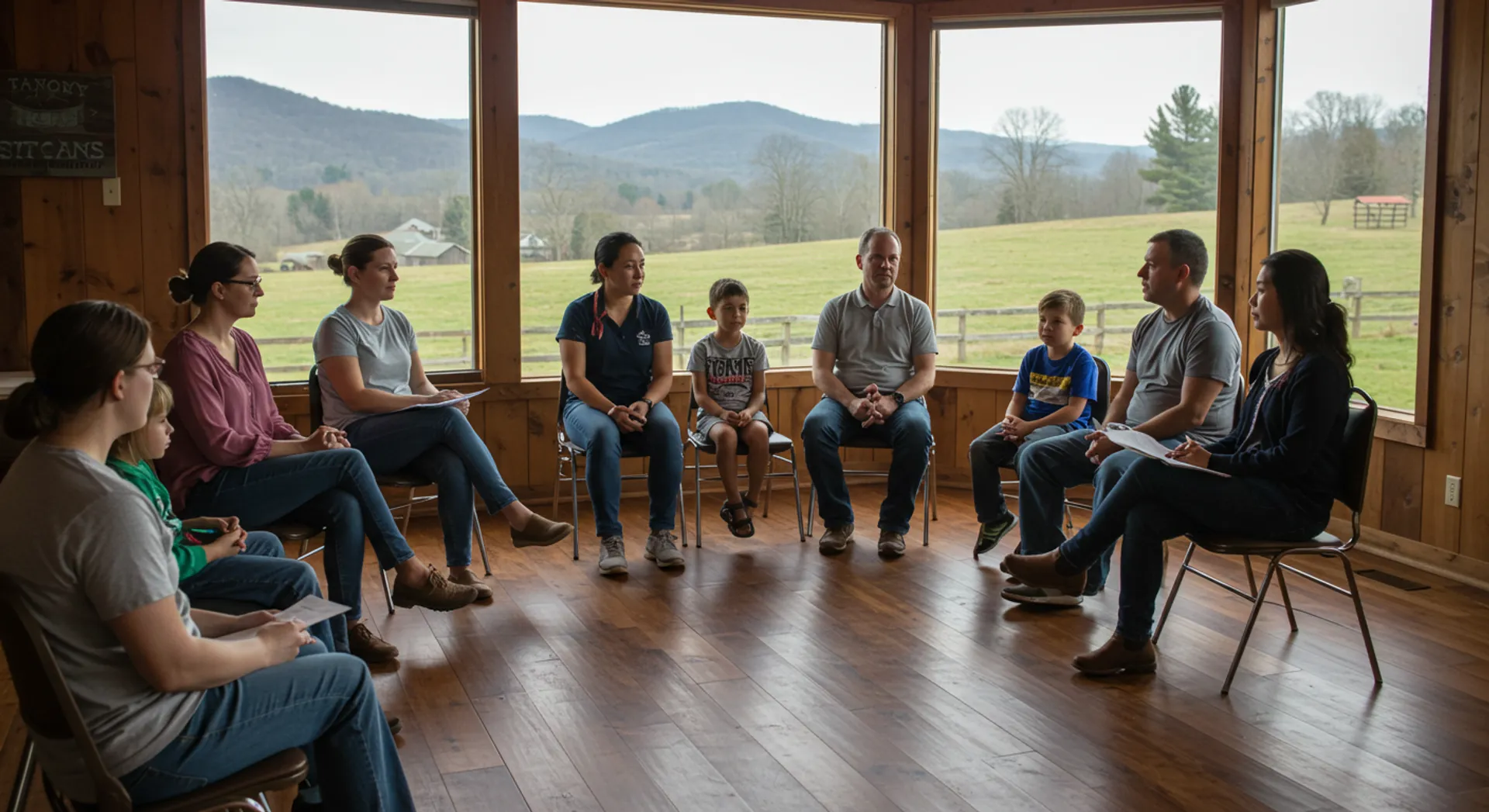Introduction
In today’s world, conversations about mental health are more important than ever. For families in rural areas like the High Country, these conversations can be even more urgent. Kids and teens in our community face unique challenges — limited access to care, isolation, and sometimes stigma surrounding mental health. By raising awareness and understanding the signs, families can take proactive steps to support the well-being of children and adolescents.
Why Kids’ Mental Health Matters
According to the Centers for Disease Control and Prevention, one in five children in the United States experiences a mental health disorder each year. Anxiety, depression, and behavioral disorders are among the most common. For teens, these challenges can be heightened by academic pressures, social media, and peer dynamics. In rural settings, additional hurdles such as geographic isolation and limited resources make it harder for families to get the support they need.
Unique Challenges in Rural Communities
Parents in the High Country often face barriers that families in larger cities may not encounter. Some of these include:
- Limited access to professionals: Finding a child psychologist, therapist, or psychiatrist locally can be difficult.
- Transportation issues: Families may need to drive hours to reach specialized care.
- Stigma: In smaller communities, there is often fear of judgment, which can prevent families from seeking help.
- Fewer school resources: Schools may not have dedicated counselors or mental health programs due to budget limitations.
Warning Signs to Watch For
Recognizing the early signs of mental health struggles in kids and teens is essential. Warning signs may include:
- Sudden changes in mood, such as irritability or sadness
- Withdrawal from friends or family activities
- Loss of interest in school or hobbies
- Changes in sleep or eating patterns
- Frequent physical complaints, like headaches or stomachaches, with no medical explanation
- Expressions of hopelessness or self-harm
When these symptoms persist, it may indicate that a child or teen needs professional support.
How Families Can Support Mental Health at Home
Even without immediate access to specialists, families in the High Country can take meaningful steps to promote mental wellness at home:
- Open communication: Encourage kids to talk about their feelings. Create a safe, non-judgmental environment where they know they are heard.
- Healthy routines: Consistent sleep, balanced nutrition, and regular physical activity help support emotional well-being.
- Outdoor activities: Spending time in nature has been shown to reduce stress and anxiety. High Country trails and parks can be therapeutic spaces for families.
- Modeling healthy coping strategies: Parents who demonstrate positive ways of handling stress set an example for their children.
Local Resources for High Country Families
Fortunately, there are organizations and resources available for families in our region:
- Parent to Parent Family Support Network – High Country: Offers support to families raising children with emotional, developmental, or health challenges. Visit parent2parent.appstate.edu.
- High Country Caregivers: Provides kinship navigation and support services for families raising children outside of traditional parental roles. Learn more at gksnetwork.org.
- Local schools and community centers: Many schools now integrate mental health awareness into programs, offering counseling or referrals to families in need.
- Telehealth services: Online therapy platforms can provide access to licensed professionals without long commutes.

How to Overcome Stigma
One of the greatest barriers to addressing mental health in rural areas is the stigma attached to seeking help. Families can fight this stigma by:
- Normalizing conversations about mental health at home
- Sharing resources openly with other parents
- Encouraging schools and community groups to host educational events
- Highlighting stories of recovery and resilience within the community
When to Seek Professional Help
If your child shows persistent symptoms that interfere with daily life, seeking professional evaluation is crucial. Start by speaking to your child’s pediatrician, who can provide referrals. Even if local specialists are scarce, telehealth options have made access easier. Early intervention can prevent issues from worsening over time.
The Role of Schools & Community
Schools in the High Country are key allies in supporting children’s mental health. Teachers and counselors are often the first to notice changes in behavior. Communities can advocate for funding school-based programs, training teachers to recognize mental health issues, and creating partnerships with local nonprofits. Community centers and faith-based groups can also serve as supportive spaces where children feel safe.
Practical Steps Families Can Take
Here are some practical strategies families can implement right away:
- Create a family mental health plan, including who to call in emergencies.
- Encourage kids to keep journals or engage in creative outlets like art and music.
- Organize playdates, youth groups, or volunteer opportunities to reduce isolation.
- Stay informed about mental health trends and resources in North Carolina.
Conclusion
Raising awareness about kids’ mental health in the High Country is more than a necessity — it’s a responsibility we all share. By learning the signs, creating supportive home environments, and connecting with local resources, families can make a difference. Even in rural communities where challenges are greater, resilience, compassion, and collective effort can ensure that children and teens thrive both emotionally and mentally.
Related Topics:













